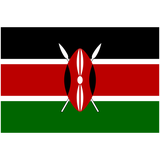
7 more Kenyan athletes banned for doping
Two-time cross-country world champion Emily Chebet was among seven Kenyan athletes banned for doping Friday, another indication that the country has a serious problem of cheating among its famed distance runners.
Chebet, the cross-country world champion in 2010 and 2013, was banned for four years after testing positive for the diuretic and masking agent furosemide, the Kenyan athletics federation said.
The list of sanctions announced by Athletics Kenya included bans for the two runners that failed doping tests at the world championships in Beijing in August. Joyce Zakary and Koki Manunga, who were provisionally suspended at the worlds, also received four-year bans for furosemide.
There has been a recent spike in doping cases in Kenya and more than 40 athletes have now failed tests since 2012. Kenyan track officials are under scrutiny after allegations of doping cover-ups, and separate accusations of embezzlement of money at the national federation.
This week, a group of athletes stormed the federation headquarters in Nairobi demanding the resignation of top officials over the doping scandals and corruption allegations.
Along with her two cross-country world titles, the 29-year-old Chebet was a bronze medalist in the 10,000 meters at last year's Commonwealth Games in Glasgow. Her ban was backdated to July 17 and she will be unable to compete until July 16, 2019.
The doping cases of Zakary, a 400-meter runner, and Manunga, a 400-meter hurdler, undermined Kenya's impressive display at this year's worlds, where the country tied with Jamaica for the most gold medals with seven. They failed targeted tests carried out by world athletics body the IAAF in Beijing, enhancing suspicions that doping in Kenya is widespread.
Zakary set a national record of 50.71 seconds at the worlds before her failed test. The two were banned until Aug. 24, 2019.
The other four athletes banned on Friday were Agnes Jepkosgei, Bernard Mwendia, Judy Jesire Kimuge and Lilian Moraa Marita.
Jepkosgei was banned for four years for testing positive for the anabolic steroid metabolite norandrosterone. Mwendia was given a two-year ban for norandrosterone. Kimuge was banned two years for the norandrolone and Marita two years for the blood-booster EPO.
A World Anti-Doping Agency panel that recently reported on a systematic program of doping cover-ups in Russia said that Kenya also has a serious doping problem. That has spurred speculation that, like Russia, Kenya could face a blanket ban from international competition.
The IAAF has opened investigations into allegations that track officials in Kenya were involved in covering up positive doping tests. In a separate investigation, the IAAF is also looking at accusations of corruption against top officials at Athletics Kenya after they were questioned by Kenyan police over the alleged embezzlement of around $700,000 of the federation's money.
One of the officials accused, AK Vice President David Okeyo, is a member of the IAAF's decision-making council. The athletes protesting at Athletics Kenya this week demanded that Okeyo and AK President Isaiah Kiplagat step down.
